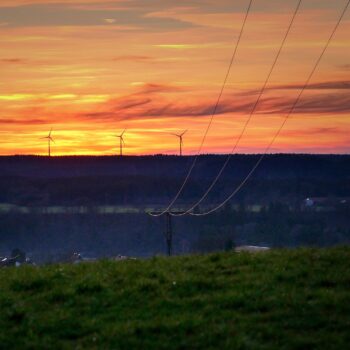The revised Trans-European Networks for Energy (TEN-E) regulation published today raises concerns over the governance of the European Green Deal project.
The revision of the TEN-E regulation is the first energy proposal since the European Green Deal communication, in which the European Commission had committed to align all sectoral legislation with the climate neutrality objective.
The prerequisite for a successful TEN-E revision, as called for by a wide community, is to review its governance approach to ensure infrastructure choices are independently defined.
Story on TEN-E regulation and the European Green Deal
The TEN-E proposal is the first energy legislation under the new European growth strategy. It precedes many other policy reviews expected in June 2021 in the so-called “Fit for 55%” Package.
The TEN-E regulation sets out European cross-border infrastructure priorities and the governance for infrastructure decisions. The previous text, based on a 2011 Commission Communication, was adopted in 2013. This was built upon political priorities and energy solutions that have now evolved. Reaching climate neutrality by 2050 requires network solutions beyond pipes and wires.
Today’s proposal falls short of addressing the new and future challenges of the energy transition:
- The new TEN-E regulation perpetuates existing vested interests and policy inconsistency for infrastructure decision making. Today’s proposal fails to set up a planning process based on independent technical expertise able to assess the potential of every decarbonisation solution, including those from the demand-side.
- It rules out fossil gas infrastructure from the list of eligible categories, but it creates a backdoor for fossil gas to be eligible in other ways, notably as hydrogen networks or smart gas grids;
- The approach to hydrogen is neither in line with the Commission’s Hydrogen Strategy nor with yesterday’s Energy Council conclusions. Instead of taking a targeted approach to where no alternatives are available, the new TEN-E proposal outlines three hydrogen backbones for an EU-wide hydrogen network.
- The new proposals would mandate the gas TSOs to develop networks for any type of hydrogen, in clear contradiction with the climate neutrality objective. The only climate compatible solution is to scale up climate neutral, renewable hydrogen, by developing and optimising the hydrogen network together with electricity grids and renewable energy supply.
- Today’s proposal better integrates the energy efficiency first principle throughout the planning and project assessment process, but it falls short in enlarging the scope of infrastructure solutions beyond the supply-side.
Quotes on TEN-E regulation and the European Green Deal
Elisa Giannelli, Policy Advisor at E3G said:
“The European Commission’s proposal fails its first test in aligning energy policy with the European Green Deal.
The Union will not base its energy infrastructure priorities and decisions on independent technical expertise. Instead, vested interests will continue to define infrastructure plans, obstructing the delivery of a truly integrated energy system.
The proposed enhanced role for ACER and the Commission is a marginal improvement, but this is not enough to avoid the risk of going off track on delivering the European Green Deal. Once again it is taxpayers and consumers who will be at risk of footing the bill on wrong investment decisions.
The big winner of this proposal is the energy efficiency first principle, which will finally play its crucial role in outlining the Union’s infrastructure priorities.”
Felix Heilmann, Researcher at E3G said:
“Der Vorschlag der Kommission bringt nur kleinteilige Verbesserungen, wo eine grundsätzliche Reform notwendig ist. Besonders bitter ist, dass die Kommission weiterhin privaten Unternehmen die zentrale Rolle in den Planungsprozessen für diese öffentliche Infrastruktur überlassen will, anstatt wirklich unabhängige Planungsstrukturen zu schaffen, wie es zahlreiche Akteure gefordert haben. Für den Erfolg des European Green Deal reicht es nicht aus, einfach auf Wasserstoffnetze zu setzen.”
Useful references
- March 2020: E3G, Benchmarks for the new Trans-European Networks for Energy Regulation
- May 2020: E3G, Gasinfrastruktur für ein klimaneutrales Deutschland (Gas infrastructure for a climate neutral Gemany)
- E3G’s scorecard here
Available for comment
Elisa and Felix are available for commentary – please contact them directly:
+32 (0) 494 584 829 – elisa.giannelli@e3g.org
+49 (0) 160 962 58080 – felix.heilmann@e3g.org

